by Daniel Hathaway
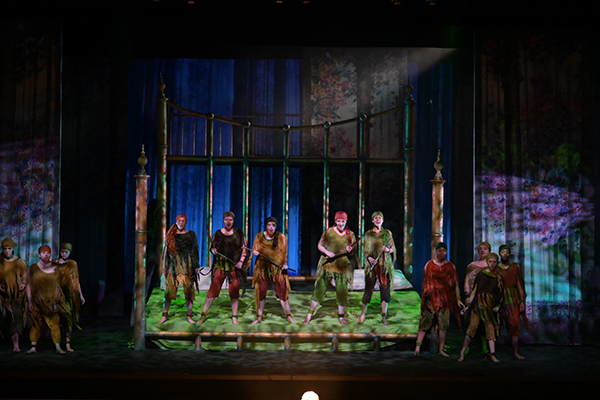
Shakespeare’s play begins with romantically-confused human characters in Athens, but when the curtain rises on an enchanted forest in Britten’s opera, the spotlight is on fairies. The music sets the mood, beginning with diaphanous glissandos that match the dappled, dark colors of the woods (scenic design by Laura Carlson-Tarantowski, lighting by Jeremy K. Benjamin, and costumes by Chris Flaharty). An enormous bed stands front and center. The Fairy royalty, King Oberon and Queen Tytania, are squabbling over a changeling that Tytania has adopted.
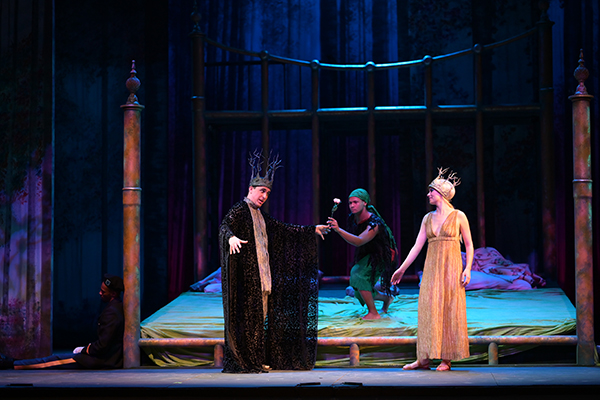
Mis-coupled human relationships involving Lysander, Hermia, Demetrius, and Helena, and love potions mis-applied by Oberon’s messenger, Puck, complicate the plot, leaving much to be unscrambled at the end of the story — just in time for the Mechanicals to hilariously stumble their way through their play at the Duke’s wedding.
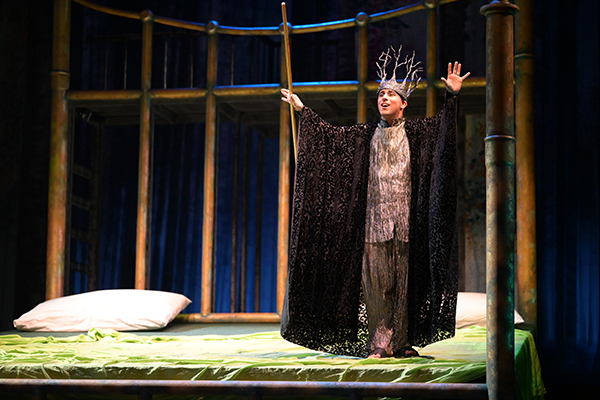
Sagana Ondande was perfectly cast as Puck, the only non-singing character. His prankish acrobatics were impressive, but his lines should have been included in the supertitles.
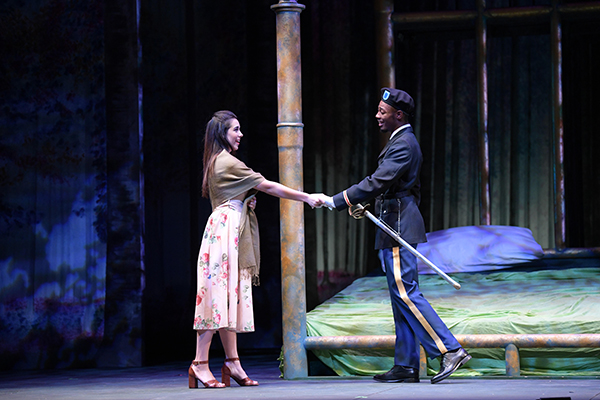
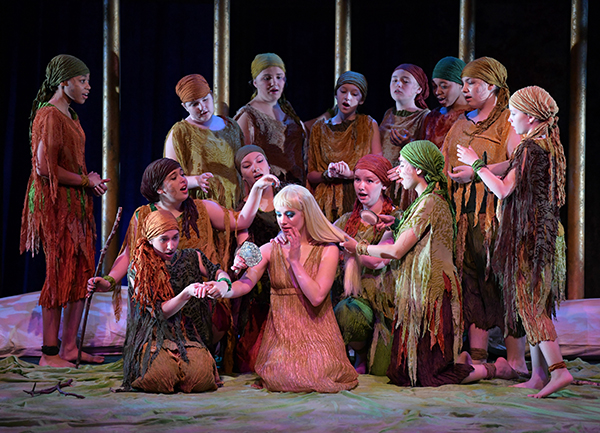
But the performances that brought down the house belonged to the Mechanicals. In The Most Lamentable Comedy and Most Cruel Death of Pyramus and Thisbe, Evan Lindberg (Bottom, a weaver) made a charmingly malaprop Pyramus. Gabriel Stafanides (Snout, a tinker) gave a resoundingly silly monologue as Wall, and Evan Tiapula (Snug, a joiner) roared convincingly as Lion.
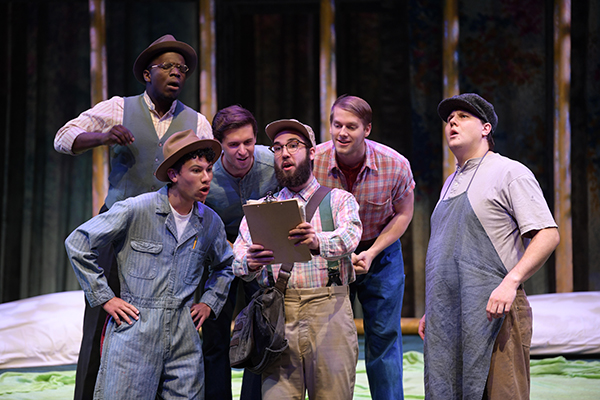
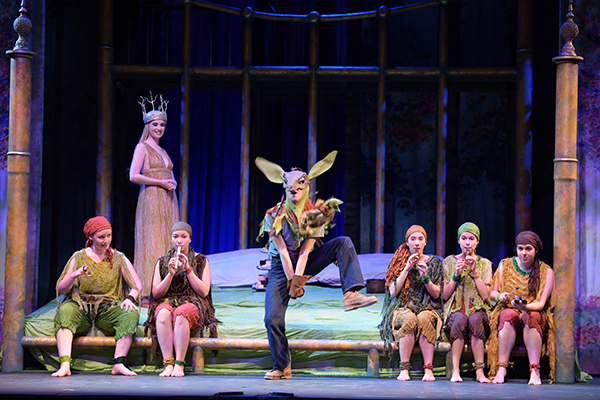
In lieu of auditory momentos from the score to take home, the Oberlin cast fanned out into the audience at the end of the opera, passing out LED roses of the type used by Oberon and Puck to administer the love potion and its antidote. Jonathon Field bought 1,500 of them to serve as souvenirs of this terrific production.
Published on ClevelandClassical.com November 26, 2019.
Click here for a printable copy of this article



